 As the new year approached, I wondered which president of the Church we’d be studying this year. Then on the last Sunday of December, my ward held a joint meeting for the third hour to explain what would follow in 2018. No longer would we study the words of modern prophets in manuals devoted to individual servants of the Lord. Now we’d study the words of prophets and apostles from recent Conference addresses. And we’d be discussing them as a group, with everyone seated in a circle facing each other. The word discussion is key. The Church would no longer provide lesson plans as it had previously. Now discussion leaders would need to prepare their own plans ahead of time considering the needs of the class. Since learning of these changes, I’ve been intensely curious to see how well they’d work. After all, this free-form format leaves a lot of blanks to fill. But observing how those blanks have been filled over the past two months, I’m totally sold on the new model. I believe it’s but a prelude of greater things to come when we embrace the moments. Embrace the freedom  Part of my concern with the new program related to my new calling as a Sunday School teacher for the 12-year-olds. It’d been years since I last taught the youth, and the Church has made many changes to youth instruction in that time. For the past couple of years, the youth have experienced in their classes what all of us now experience in our classes and meetings. The Church still provides the skeleton pieces of what could be a lesson plan. I like this new model, especially the freedom to put the pieces together in the way I feel inspired. I also love how, even though we make our own lesson plans, we can go off script any time we feel inspired. Instructors have always had this freedom, but I’m glad the new model builds on it. Some of the best learning moments for both student and instructor occur during those unpredictable moments that simply come. Embrace the belonging  What I really like best about the new model is a newfound sense of belonging. Perhaps the biggest contributor to this sense lies in the seating arrangement. Before, chairs would commonly be arranged in rows. Often people would sit as far back as they could. Everyone has typical places to sit as well, providing a feeling of stagnation. Now, with the insistence on sitting in a circle, there’s no more seeing the backs of other people’s heads. The circle arrangement has everyone seeing everyone. And there’s no “fixed position” for anyone. That arrangement changes the whole dynamic of how I’ve come to see myself in my ward. Over the years, I’ve typically felt estranged. Lessons were typically about this marriage-and-family thing I didn’t have. And sitting so as to be less visible by others didn’t help with the sense of belonging either. That’s all changed with the new model. Lessons still focus on the marriage-and-family thing I don’t have, but there’s something about sitting in a circle where everyone can see everyone that provides this sense that we don’t need to be in the same chapter of life to be on the same journey. Embrace the opportunity  That shift in perspective helped me to see something I wasn’t seeing before. We singles need to contribute more to meetings and classes in general membership wards. Our failure to do so hurts everyone. The other week in quorum meeting, the discussion turned to descriptions of children spending countless hours watching online videos of other kids doing things, like play a video game or build a model. A flash of inspiration came to me, and because I felt more a part of the group, I decided to share it. After announcing my ignorance in dealing with kids, I suggested the fathers actually do with their kids what they’re watching other kids do in the videos. This comment completely changed the tenor of the meeting. The discussion branched into a direction it otherwise wouldn’t have. The spirit and comments that followed helped me to see that many of the brethren were edified by the new direction the discussion took after my contribution. As I said before, I’m totally sold on the new model the Church has employed for our classes and meetings this year. We singles have much to contribute therein. Instead of complaining about how we don’t fit in and tuning out, we can embrace the moments the new model offers to lift where we stand. When we make those contributions, we can bless the lives of others on the same journey we’re on. And that will bring more joy in our journey.
0 Comments
This is a common plight among singles groups everywhere, especially in areas where Latter-day Saints form a small proportion of the population. There is a solution to this dilemma, but it’s not very common. First, we need to ask ourselves, “What exactly are we trying to accomplish? How are we defining success?” Once we have that definition, we need to evaluate it, because our definition of success may not be the one we need to have. With the right definition of success in play, your next steps are developing a vision and then aligning everyone with that vision. Many singles programs falter because they have the wrong vision or no vision at all. And you can’t rally anyone around a vision that either doesn’t work or doesn’t exist. How do these steps typically play out? Let’s examine that. Define your success 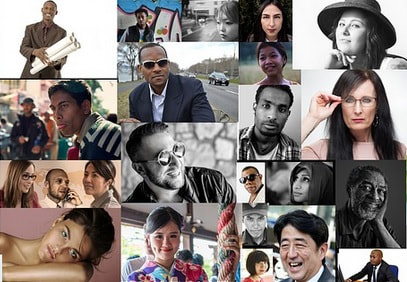 I’ve got a few years experience as both a ward and stake single adult rep, so I’ve sat in plenty of those meetings where activities and singles issues are discussed. I’ve also shared experiences with numerous singles groups leaders at conferences. One pattern I’ve found is the typical definition of success. Most singles leaders define success by attendance; the more people who come, the more successful the activity. But what’s really going on here? Does a bigger number really mean more success? In my experience, bigger numbers are simply a bigger stroke to the ego of those who organized and sponsored the activity. That doesn’t really help anyone live a better life. If we can put our egos aside, we can more easily recognize that the Savior focused on only one number: the number one. He was always concerned about the individual. In fact, most of the stories we have of Him ministering to others involves His interaction with an individual person. If we define success in terms of touching or improving the life of at least one individual, then it doesn’t matter how many people attend. Success will always be within our grasp. And paradoxically, it lays the foundation for explosive growth in the numbers. Develop your vision  In Proverbs 29:18 we read, “Where there is no vision, the people perish.” That’s just as true for singles groups as it is for anyone else. Typically, LDS singles attend activities with one of two visions — the dating forum or the activity club. I’ve spoken about each of these at length in previous posts, but here’s a brief review. The dating forum perspective sees singles activities solely as a means to find an eternal companion. If they don’t see anyone they want to date, people don’t attend. Then there’s the activity club. This is the group that’s tired of dating and just wants to have fun with friends. The problem with both of these approaches is their inward focus. Singles with either of these perspectives invariably focus on serving themselves. Contrast that with the more effective approach of the support network — attending activities with the purpose of supporting other singles. That outward focus aligns much better with the path of discipleship our Savior marked. When everyone adopts the attitude of the support network, people feel they’re part of something bigger than themselves. They have a contribution to make that can improve the life of someone else. And losing themselves in service, they find themselves enjoying life a lot more. Build the network 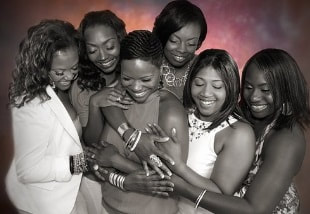 What I’m describing won’t happen overnight. That’s because it’s not some quick-fix, fly-by-night fairy dust. This is a real solution that really works. While I lived on the East Coast, our activity attendance increased by 10X in one year. But more important than that, our exchanges with each other were more real. We were genuinely concerned about each other, despite coming from different generations and backgrounds. Our activities weren’t about completing a calendar or checking a box on a to-do list. Rather our activities were about supporting LDS singles. That’s the driver behind real growth — love. People respond to love. Feeling loved is one of our most deeply seated needs as individual children of God. When you love the people into a support network, they’ll join you. The dating forum and the activity club make very poor primary drivers behind participation. We best help ourselves and everyone else when we discard our individual agendas for attending singles activities. People have needs. When we align what we do with meeting the needs of the people, we’ll find the true success that the Savior marked. And that will bring more joy in our journey.
 Today is Valentine’s Day — the day when every man with a significant other must make an expected love offering to his significant other. That could take the form of flowers or chocolate or something else — or even some combination of the above. If you’re in this category, then you know what I’m talking about. Then there are the myriads of LDS singles who don’t have that special someone in their life. Many of these will be pining away in their lack, yearning to have what they don’t have, and frustrated that the life plan our LDS subculture gives us all hasn’t worked out for them. They focus on what they lack and the belief that they are so much less because of that lack. Because your focus always determines your reality, their reality is one of lack. Yet not all singles associate Singles Awareness Day with negativity. These hardy souls reject defunct, old ways of thinking and adopt better ways of thinking that produce a better focus leading to a better reality. These singles focus on what they can do, what they can give, and how they can serve. They partner with the Lord in fulfilling a personal ministry. In essence, they ditch the pity party. Envision a new reality  Some years ago I wrote what I’ve come to regard as a classic blog post on the pity party. If you have any doubt pity parties are dungeons of doom to be avoided, please read that post. You’ll find your time well spent. More than one Singles Awareness Day has passed since I wrote that post. I can honestly say that I was emotionally stable for each of them. I never felt like crying or surrendering to a pit of despair or even The Pit of Despair of The Princess Bride fame. In fairness I should acknowledge I had a significant other for at least one of them, and in that event I made sure to satisfy that special someone. But during the other Singles Awareness Days in which I had no significant other (like today), I felt as though the day was no different from any other. What I’m describing is not apathy or disconnectedness. It’s a reality created by a different focus and a different way of thinking. And I’m not the only LDS single who has them. Truly believe the gospel  Do we know something pity party advocates don’t? Assuming we’re all LDS, not really. We all know the same basic truths of the restored gospel. The difference is in what we believe. We truly believe the Lord loves us so much He can’t wait to bless us. The Lord will play His part in realizing our desired blessings. We understand we also have a part to play, but we believe that, in addition to playing His part, the Lord will help us to play ours. That faith allows us to let go of the frustration associated with wanting what we don’t now have. We believe Him so much that we’re willing to wait on Him. Instead of focusing on what we lack, we focus on what we have. That focus allows us to see the tender mercies of the Lord surrounding us every day. And it allows us to feel the love of the Lord for us in every one of those tender mercies. Embrace new ways of thinking  Truly believing the truths of the restored gospel is just the first difference in our beliefs. The second difference lies in what we believe about happiness. Long-time audience members will recognize my definition of happiness: Happiness isn’t just doing the right things but giving your all to the right things for you. We truly believe that definition of happiness. And we demonstrate that belief by living it. I devoted the entire radio program last week to this new way of thinking about happiness. We know happiness is a choice. And because we always have a choice regardless of our circumstances, we can always find happiness no matter what life may bring us. We don’t need to wait to be happy, and we aren’t. No desire to host a pity party can touch us. We’ve effectively ditched the pity party. You too can ditch the pity party, if you haven’t done so already. You can change your focus from what you lack to what you have. You can change your thinking about happiness. You can choose to trust the Lord and walk by faith. When you do, you’ll free yourself from all the negative emotions that often attend pity parties. You’ll see that you don’t have to wait to be happy. You’ll rise towards your best self. And that will bring more joy in your journey.
 Stephen Covey often said you don’t want to exert yourself climbing a ladder only to find it leaning against the wrong wall. He said this to teach the importance of priorities. We need to move ourselves towards what matters most. The same analogy holds true with how we think. We need to think about ourselves and our world in ways that move us towards what matters most. Otherwise, we’ll spend countless amounts of energy in unproductive ways only to find ourselves no closer to the blessings we seek. This is very true for LDS singles. Too many of us obstruct our own paths towards the blessings we seek. Defunct, old ways of thinking about ourselves and our world keep us feeling very much like that hamster down at the local pet store — always spinning our wheels but never really getting anywhere. Many of the negative emotions many LDS singles experience are completely unnecessary. If you feel trapped in a negative reality, consider your focus. Your reality always comes from your focus. And your focus comes from the way you think. Change the way you think, and you can be happy regardless of your circumstances. Happy in how we’re thinking  Many LDS singles don’t think that way. They believe their reality comes from what they have rather than how they think. They believe they can be happy only when they have a special someone in their life. Is it really lack that creates unhappiness? Or is it the way we think about happiness? I’ve known many people on my mission who were happy yet had very little in terms of this world’s goods. I’ve also known many singles who had nothing in terms of a special someone who were very happy. And I’ve known many marrieds who had that special someone and were very unhappy. Clearly it’s not having that brings happiness. Happiness comes from giving your all to the right things. It’s not in getting but in giving. It’s not in having but in how we’re thinking. Happy before and after the blessing  But why then go through all the emotional turmoil of dating to get something you don’t really need to be happy? LDS singles understand that marriage and family are parts of Heavenly Father’s plan, blessings He wants all of His children to experience. These are some of the right things to which we need to give ourselves. The problem comes in thinking we can’t be happy until we have the blessing or we can’t be happy unless we’re moving towards the blessing. Of course, we should be doing what lies in our power to achieve eternal blessings. But we shouldn’t obsess over it to the point where we hang our happiness in the balance of having versus not having. That sort of binary thinking will never bring lasting happiness. Lasting happiness comes when we give ourselves to the right things. Those right things include our discipleship, the friends and family we do have, and our personal ministries. Happy without the special someone  Can giving ourselves to these things help LDS singles be happy without that special someone? I answer with a resounding YES! It really is all in how you think about it. If we truly have faith in Christ, then we’ll do two things:
With these two items in place, our focus is directed outward on what we can do, what we can give, and how we can serve. Without these two items, it’s far too easy for the natural man or woman to direct our focus inward on what we want, what we can get, and how we can be served. When you reject defunct, old ways of thinking and adopt better ways of thinking, you can have a better focus leading to a better reality. You can partner with the Lord in fulfilling a personal ministry. When you make the conscious choice to give your all to the right things — to what matters most — you can be happy regardless of any circumstance in your life. That’s the path to lasting happiness. And that will bring you more joy in your journey.
|
Author
Howdy! I'm Lance, host of Joy in the Journey Radio. I've been blogging about LDS singles life since 2012, and since 2018 I've been producing a weekly Internet radio show and podcast to help LDS singles have more joy in their journey and bring all Latter-day Saints together. Let's engage a conversation that will increase the faith of LDS singles and bring singles and marrieds together in a true unity of the faith.
Comment
Joy in the Journey Radio encourages the free discussion of ideas but reserves the right to remove and/or block comments which do not conform to LDS standards.
Donate
Joy in the Journey Radio offers many free resources to help LDS singles everywhere, but it certainly isn't free! Help Joy in the Journey Radio in its mission to improve the lives of LDS singles by donating today.
Posts by Month
December 2022
Categories
All
|

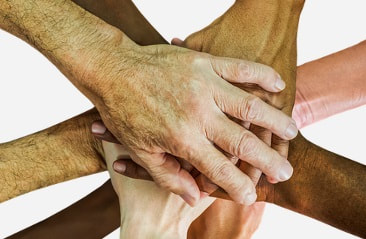
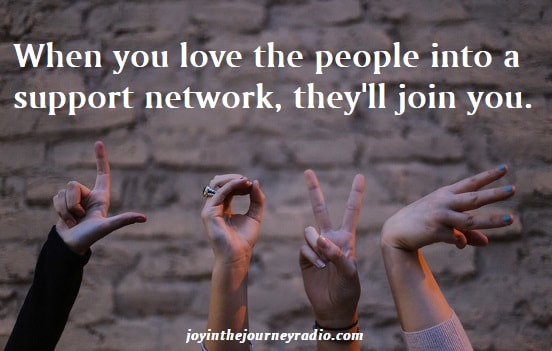
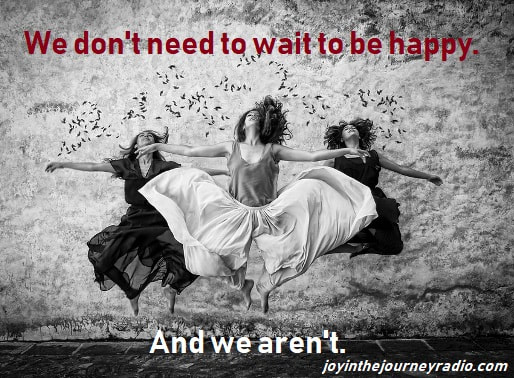

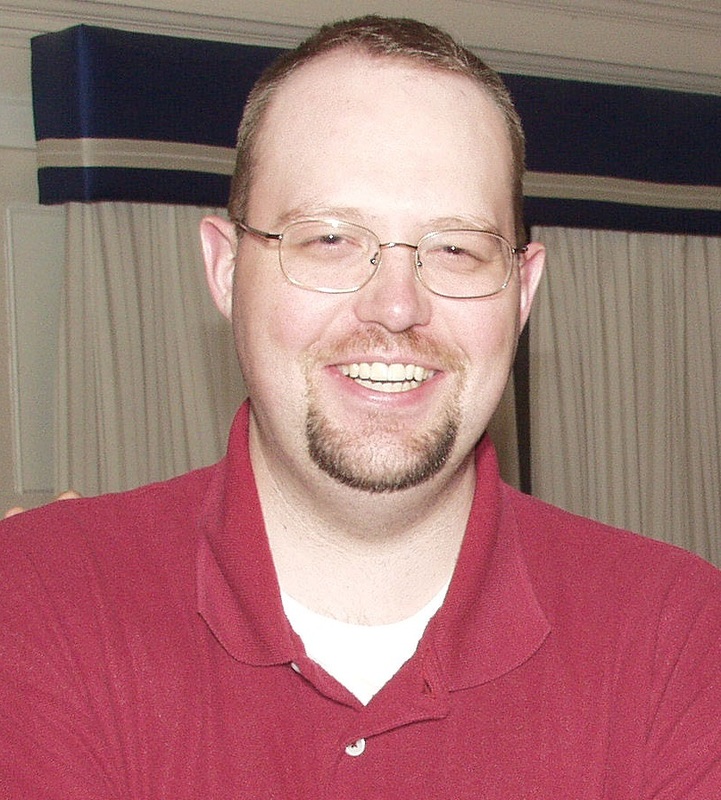
 RSS Feed
RSS Feed